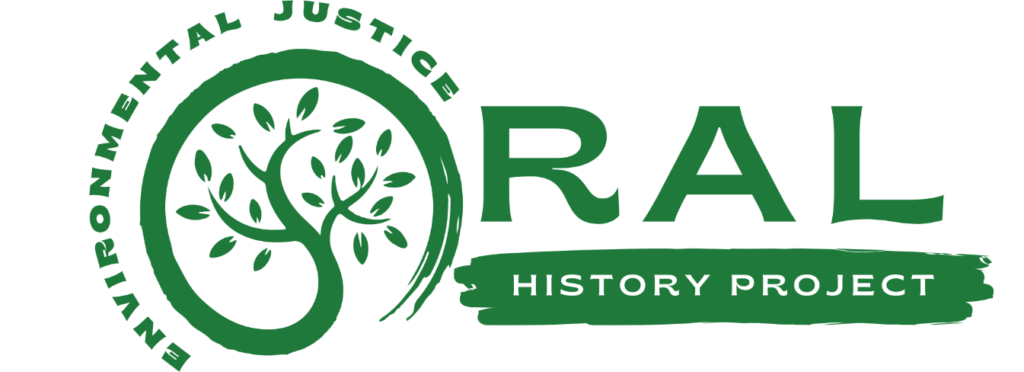What is the EJ Oral History Project?
The EJ Oral History Project is a multi-dimensional storytelling program that aims to elevate and uplift the personal experiences and narratives of historically underserved populations with regard to environmental justice. This project hopes to document a history of environmental experiences in the American South, injustices and place-based pleasures, through communal storytelling, adding a humanist and documentary perspective on environmental issues while advocating for just, equitable, and anti-racist solutions.
What is Environmental Justice? Is it just the “fair treatment and meaningful involvement of all people” in “the enforcement of environmental laws, regulations, and policies”?
This project argues environmental justice extends beyond pollution exposure and equal treatment to include land-based joy, and histories and modernities grounded in ancestral connections to nature, place, and space. Environmental Justice is a culture as much as a movement. It is an acknowledgment of past wrongs, present protest, and future well-being.
The Environmental Justice Movement is an under-covered and under-recognized arm of the Civil Rights Movement. Where oral historians have been collecting stories from the champions of the Civil Rights Movement for decades, the Environmental Justice Movement has stewed on the back burner, a forgotten memory in academic spaces and traditional storytelling.
This project uses the tradition of oral history to re-center environmental joy, environmental harm, and environmental justice in mainstream media conversations. In connection with community partners representing the mothers and fathers of the Environmental Justice Movement as well as the next generation of movement leaders, this collection is an attempt to bring the under-covered, under-reported, and under-resourced to the forefront.
Community Partners
The Rural Beacon Initiative
The Rural Beacon Initiative (RBI) is a BIPOC-led social enterprise that leverages deployed projects to increase community ownership in the emerging supply chains of clean energy and regenerative agriculture. RBI’s mission is to ensure that BIPOC communities—particularly BIPOC communities in the Southeast—are at the forefront of a just transition that deploys projects which not only lower emissions and electrify communities but create real economic opportunities for those that have too long been siloed from this conversation.
The EJOHP has worked with RBI founder, William Barber III, to collect oral histories and develop articles about their organizations first deployed project, the Free Union Farms Hub, and the legacy of the Piney Woods Free Union community in Jamesville, North Carolina.
Learn More
The North Carolina Black Alliance
The North Carolina Black Alliance (NCBA) is working toward state-level systemic change by strengthening the network of elected officials representing communities of color throughout the state and collaborating with progressive, grassroots networks on intersecting issues. These issues range from voting rights, gerrymandering, criminal justice reform, health and wellness, economic development to education. The North Carolina Black Alliance is committed to advocating for environmental justice, ensuring that water and air quality in Black communities is not contaminated, and eliminating inequalities in the location of environmentally hazardous facilities and enterprises.
The EJOHP is a recipient of NCBA’s 2022 Environmental Justice mini-grant and has worked with Environmental Justice programming team leaders La’Meshia Whittington and Jovita Lee to strategize on best engagement practices for our oral history, journalism, and podcast components.
Learn More
The Warren County Environmental Action Team
The Warren County Environmental Action Team (WCEAT) is a network of organizations & individuals working together to record, celebrate, and share Warren County's environmental justice legacy, natural resources, and diverse culture.
The EAT engages with other community leaders on various initiatives, including:
- Offering environmental justice-focused tours of Warren County
- Supporting local farms and community gardens
- Connecting Warren County with ongoing environmental justice movements
- Building community among residents and grassroots organizers in Warren County
The EJOHP worked with WCEAT on the 40th anniversary of Environmental Justice celebrations and has connected with several network members for oral history guidance and direction.
Learn More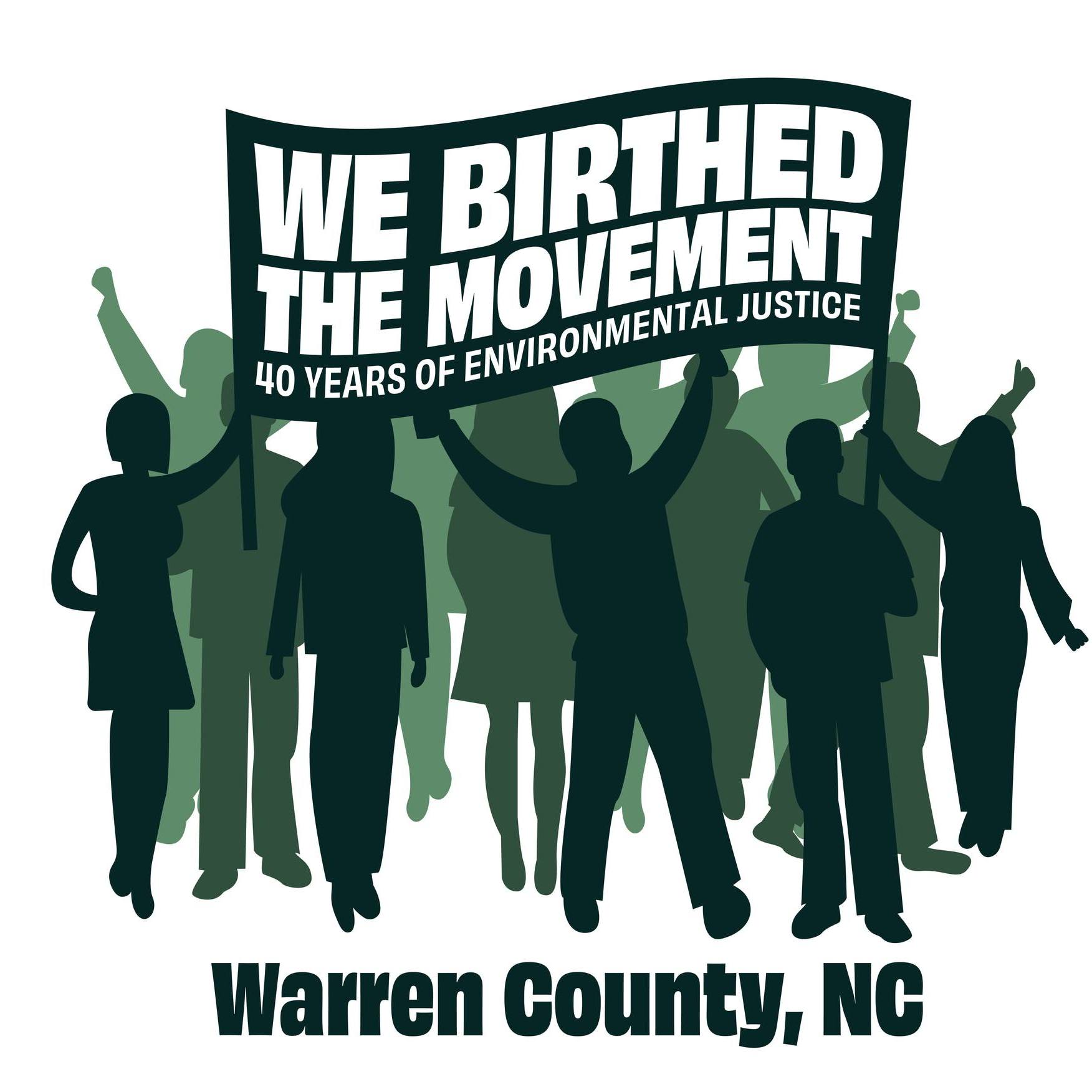

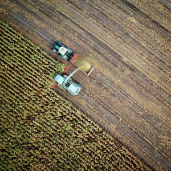
Friends of Buckingham
Friends of Buckingham is a group of of Buckingham County citizens united to work with county leaders to attract economic investment opportunities that benefit all residents, and that contribute to a sustainable healthy environment. They are dedicated to celebrating their county’s diverse cultural heritage, rural lifestyle, and to protecting natural resources and last, remaining, wild places.
Towards that end, they are committed to protecting the health and environment from any outside interests that seek to exploit their natural resources, such as the proposed Atlantic Coast Pipeline (ACP, formerly known as the Dominion Southeast Reliability Project).
The EJOHP partnered with Friends of Buckingham to collect a mini-collection of oral histories on the civil disobedience that took place in response to the proposed Atlantic Coast Pipeline from 2013-2020.
Learn More
The Center for Rural Enterprise and Environmental Justice
The Center for Rural Enterprise and Environmental Justice (former the Alabama Center for Rural Enterprise) was created by Catherine Coleman Flowers to reduce health and economic disparities and improve access to clean air, water, and soil in marginalized rural communities by influencing policy, inspiring innovation, catalyzing relevant research, and amplifying the voices of community leaders, all within the context of a changing climate.
CREEJ, as a part of a longstanding partnership with Duke University, was one of the original project partners and grant applicants in 2021.
Learn More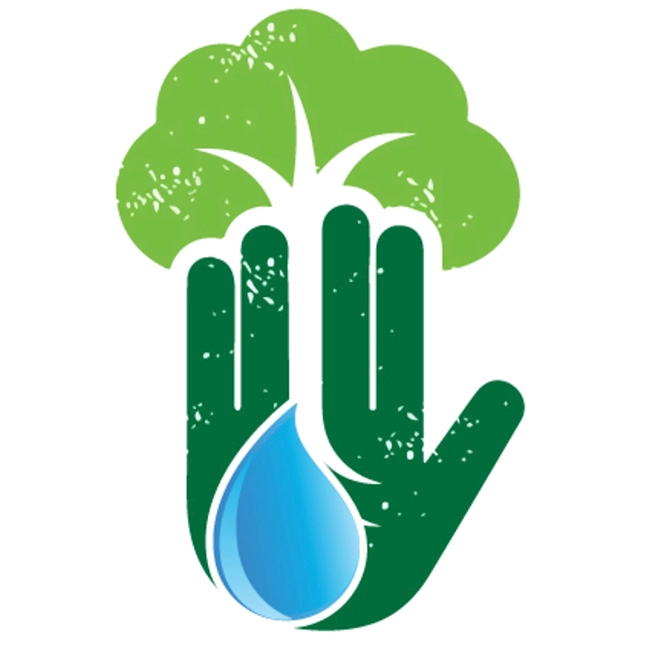
INSTITUTIONAL
PARTNERS


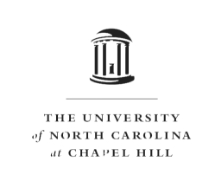
Who We ARE
Our work would not be possible without the effort, patience, flexibility, and care of our student, faculty, and staff oral historians, journalists, and advocates. We are extremely proud of the epiphanies, laughter, progress, and fellowship we’ve fostered as a part of this process.
LEADERSHIP TEAM (2021-Present)

Cameron Oglesby
View Bio +Cameron Oglesby (she/her)
Project Lead
Cameron Oglesby is an environmental justice organizer, oral historian, ecologist, and award-winning journalist dedicated to re-centering the voices, narratives, and knowledge of historically disinvested communities in mainstream storytelling and solutions building. Cameron received her B.A. in environmental science and policy from Duke University (‘21) and her M.P.P from Duke’s Sanford School of Public Policy concentrating in environmental policy, corporate sustainability, and environmental justice (‘23).
Cameron has spent her six years in North Carolina working with community leaders to put together climate education initiatives and report on the intersection of environmental racism, infrastructure and policy, and land and agriculture. She is Covering Climate Now's 2023 Student Journalist of the Year, an Aspen Climate Future Leader, an NAAEE Environmental Education (EE) 30 Under 30 Leader, a Black in Environment Youth Environmentalist Awardee, a PCIC Young Climate Leader of Color Fellow, and a Yale Public Voices Fellow on the Climate Crisis whose journalism has appeared in The Nation, The Margin, Atmos Magazine, The Assembly NC, Grist, Southerly, Scalawag, Earth in Color, Yale Climate Connections, and Environmental Health News.
In addition to spearheading this project, she is a representative on the Warren County Environmental Action Team and a Board Member for the Rural Beacon Initiative. She is currently developing a primer on the layered history of environmental racism in the U.S. in collaboration with movement icon Rev. Dr. Benjamin Chavis.

Ameena Hester
View Bio +Ameena Hester (she/her)
Assistant Project Coordinator
Ameena Hester is a senior Public Policy major at the University of North Carolina at Chapel Hill. Her fieldwork concentration in environmental and human welfare, as well as her research on racial health disparities and involvement in environmental justice advocacy reflect her commitment to mobilizing community-informed, equitable policies. She is passionate about vesting global sovereignty principles in the mitigation of climate change, disease persistence and environmental injustices— particularly for improving health outcomes in Black, Indigenous, migrant, and displaced communities.
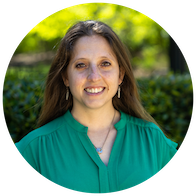
Amanda Ostuni
View Bio +Amanda Ostuni (she/her)
Journalism & Transcript Manager
Amanda Ostuni has a Master of Public Policy from Duke University, and a BA in Journalism from Northeastern University. She spent nearly two years as a reporter for a daily newspaper in Massachusetts, before leaving to serve in an AmeriCorps disaster relief program. Through that service experience, she gained deep insight into myriad of environmental issues and injustices across the South. It bolstered her interest in human rights advocacy, and though after the program she spent a few more years working in various media roles, in 2020, she began transitioning toward a policy career. Today, she's leveraging her communications skills and policy/political knowledge to improve social justice by conducting outreach and casework for the unhoused population in NYC, and by working on journalism pieces linked to this EJ Oral Histories Project.
FACULTY ADVISORS (2021-2023)

Erika Weinthal
View Bio +Erika Weinthal (she/her)
Project Advisor/Oral History Faculty Lead
Dr. Weinthal specializes in global environmental politics and environmental security with a particular emphasis on water and energy. Current areas of research include (1) global environmental politics and governance, (2) environmental conflict and peacebuilding, (3) the political economy of the resource curse, and (4) climate change adaptation. Dr. Weinthal’s research spans multiple geographic regions, including the Soviet successor states, the Middle East, South Asia, East Africa, and North America. She is the co-director of the Duke Human Rights Center at the Franklin Humanities Institute and has been working with the Center for Rural Enterprise and Environmental Justice (formerly ACRE) on environmental justice at Duke for several years.
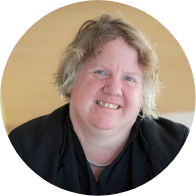
Elizabeth "Betsy" Albright
View Bio +Elizabeth “Betsy” Albright (she/her)
Project Advisor/Oral History Faculty Lead
Elizabeth's current research centers on how policies and decisions are made in response to extreme climatic events. Further, she is interested in collaborative decision making processes, particularly in the realm of water resource management. She has received a grant from the National Science Foundation and a Fulbright Scholarship to support her scholarship. During the 2018-2019 school year, she worked with the Center for Rural Enterprise and Environmental Justice (formerly ACRE) on a Bass Connections project to improve sanitation access in Lowndes County, Alabama.
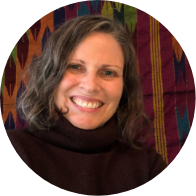
Lou Brown
View Bio +Lou Brown (she/her)
Project Advisor/Story+ Project Manager
As Senior Research Scholar and Director of Programs for the Forum for Scholars and Publics, Margaret “Lou” Brown advocates for, develops, and supports interdisciplinary program development and community engagement. She holds a Ph.D. in sociocultural anthropology from Washington University in St. Louis, where she also taught and developed education and outreach programs in Anthropology, American Culture Studies, Social Thought and Analysis, and the Center for New Institutional Social Sciences. Prior to helping launch the Forum for Scholars and Publics at Duke, she coordinated the academic programs for the Politics, Philosophy, and Economics Certificate Program and the Ethics Certificate Program and managed education and outreach programming for the Kenan Institute for Ethics.

Miguel Rojas Sotelo
View Bio +Miguel Rojas Sotelo (he/him)
Project Advisor
Miguel Rojas-Sotelo works at the intersection of critical human geography, ethnic studies, visual anthropology, environmental and health humanities and cultural theory. As scholar, filmmaker, visual artist, and media activist he studies how communities of color (indigenous and migrants) and natural spaces are shaped by modernity and how they mobilize to adapt and resist. He is particularly interested in how such people(s) articulate their archival knowledge, racial and class politics, the spatiality of those processes, and how they are manifest in the landscape via visual, audiovisual, oral, and textual narratives.
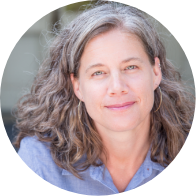
Wesley Hogan
View Bio +Wesley Hogan (she/her)
Project Advisory
Wesley Hogan is Research Professor at the John Hope Franklin Humanities Institute. In June 2021, she concluded an 8-year tenure as Director of the Center for Documentary Studies at Duke. Between 2003-2013, she taught at Virginia State University, where she worked with the Algebra Project and the Young People’s Project. She writes and teaches the history of youth social movements, human rights, documentary, and oral history. She co-facilitates a partnership between the SNCC Legacy Project and Duke, The SNCC Digital Gateway, whose purpose is to bring the grassroots stories of the civil rights movement to a much wider public through a web portal, K12 initiative, and set of critical oral histories.
ORAL HISTORY TEAM (2022-2023)

Christina Boxberger
View Bio +Christina Boxberger (she/her)
Christina is a senior undergraduate from Durham, North Carolina majoring in Environmental Science with a minor in Psychology. She has been involved in the project since it started in 2021, and she is active on both the oral history and journalism teams. Christina is really interested in the intersection between social justice and the environment, and she has loved using storytelling to learn about communities' connection to the land.

Dani Sullivan
View Bio +Dani Sullivan (they/them)
Dani Sullivan is a second-year graduate student at the Sanford School of Public Policy studying social and environmental policy. Their passion lies in the integration of racial, social, and environmental justice. They have a background working in local government and community organizing and plan to continue that path after graduation.
LinkedIn: https://www.linkedin.com/in/dani-sullivan-b3805116b/

Hattie Halloway
View Bio +Hattie Halloway (she/her)
Hattie Halloway is a third-year undergraduate student from Chapel Hill, North Carolina. As a public policy and psychology double major, she is interested in understanding the impact of policy on people’s individual lived experiences. Hattie is particularly passionate about the environment and racial justice and was drawn to this project as it focuses on the connection between these two issues. Her contributions to this project include interviewing environmental justice advocates and transcribing oral histories.
LinkedIn: https://www.linkedin.com/in/hattie-halloway-78a487205/

Megan Corey
View Bio +Megan Corey (she/her)
Megan Corey is a second-year undergraduate from Durham, North Carolina majoring in history with a concentration in Human Rights and Social Movements and minoring in Spanish. She joined this project to learn more about the intersections between social justice, systemic racism, and the environment. This project has taught her a lot about storytelling as a mode of advocacy and understanding history. Her contributions to this project include collecting and transcribing oral histories from advocates who are part of the environmental justice movement as well as members of the Piney Woods Free Union community.
LinkedIn: https://www.linkedin.com/in/megan-corey-95a3001b7/

Meghna Parameswaran
View Bio +Meghna Parameswaran (she/her)
Meghna Parameswaran is a second-year undergraduate from Northern Virginia majoring in International Comparative Studies and minoring in Environmental Science and Policy. Merging these disciplines, she is passionate about achieving equitable justice and sustainability through anticolonial, community-led, structural change-making. Although she is new to the Environmental & Climate Justice movements, she has loved learning about the power of storytelling and intersectional environmental activism, collecting oral histories with EJ advocates from the U.S. South and members of the Piney Woods Free Union community, and assisting in the coordination of Earth Month events centering Environmental Justice In Action.

Rachel Kamis
View Bio +Rachel Kamis (she/her)
Rachel Kamis is a third-year undergraduate student from Bethesda, Maryland studying cultural anthropology and psychology. With her background in ethnographic work and passion for social justice, Rachel recognizes the importance of preserving community memory. She joined this project to help tell the stories that need to be told. Her contributions to this project include collecting and transcribing oral histories from members of the Piney Woods Free Union Community and environmental justice advocates from across the country. Additionally, she has interviewed environmental justice advocates for our project’s podcast, In Conversation, In Community.
LinkedIn: https://www.linkedin.com/in/rachel-kamis-ba1478227/
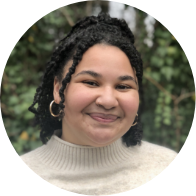
Sophia Chimbanda
View Bio +Sophia Chimbanda (she/her)
Sophia Chimbanda is a senior undergraduate majoring in “Social Movements and Social Justice”. She grew up in Indianapolis, IN, but has found a love and fondness for the American South since her parents moved to Georgia and she came to Durham. Sophia believes in the power that storytelling and oral history can have and wants to explore that through an environmental justice lens. She has enjoyed and is grateful for everyone’s work on the project and hopes to encourage people to also believe in the power of storytelling.
LinkedIn: https://www.linkedin.com/in/sophia-chimbanda-5065401a0/

Tashia Ethridge
View Bio +Tashia Ethridge (they/them)
Tashia Ethridge is a Duke University student majoring in African & African American Studies and receiving a certificate in Documentary Studies. They were born and raised in Western North Carolina. Tashia believes in the power and necessity of story-telling and sharing, particularly within our own communities. They center play, collaboration, and dialogue within their work. They are currently constructing their own personal archive and encouraging others to do the same.

Victoria Ely
View Bio +Victoria Ely (she/her)
Victoria Ely is a second-year undergraduate from Elkridge, Maryland majoring in International Comparative Studies and Spanish. She joined this project to build on previous oral history work she performed as a member of her freshman class’ Envisioning Human Rights student group. Her contributions to this project include collecting and transcribing oral histories from members of the historic Piney Woods Community and environmental justice advocates in Texas and North Carolina.
LinkedIn: https://www.linkedin.com/in/victoria-ely-a474bb21b/
MEDIA TEAM (2022-2023)

Kaylee Rodriguez
View Bio +Kaylee Rodriguez (she/her)
Kaylee Rodriguez is a senior undergraduate majoring in Public Policy, minoring in Environmental Science and Policy, and pursuing a certificate in Policy, Journalism, and Media Studies. A Miami native, her proximity to the ocean and Everglades inspired her interest in the environment and people’s connection with the natural world. Her main interest is understanding the intersections between climate change, displacement, and immigration. She has been part of the project since it started and contributed to the Piney Woods documentary and coverage of the 40th anniversary of the Environmental Justice Movement in Warren County.
LinkedIn: https://www.linkedin.com/in/kaylee-rodriguez-103a501a9/

Lillian Thomas
View Bio +Lillian Thomas (she/her)
Lillian Thomas is a second-year Master of Public Policy candidate at Dukes' Sanford School of Public Policy. Hailing from Mobile, Ala., she received her bachelor's degree in Political Science from Spelman College. While at Spelman, she was awarded National Action Networks Youth Leader of the Year, recognized by #RealCollege for her activism around student hunger, and was a Forbes 30 under 30 Fellow. Lillian comes from a political background; she served as the South Alabama regional director for Sen. Doug Jones' re-election campaign. While at Sanford, she focused on both social and educational policy. She interned with Los Angeles Unified School District working directly under Superintendent Alberto Carvalho while conducting extensive research on the district's nutrition program. Lillian will graduate in May 2023 and plans to take her experience and knowledge to make a positive impact in the field of public policy. With a passion for advocating for disinvested communities and addressing systemic inequalities, Lillian is dedicated to creating meaningful change through policy solutions. As she approaches the end of her Master of Public Policy program, Lillian is excited to continue her journey and apply her skills to make a difference in the world.
LinkedIn: https://www.linkedin.com/in/lillian-thomas-8b8897123/

Madeline Waterfield
View Bio +Madeline Waterfield (she/her)
LinkedIn: https://www.linkedin.com/in/madeline-waterfield-422957217/

Nhu Bui
View Bio +Nhu Bui (she/her)
Nhu is a student from Houston, TX majoring in Environmental Science & Policy and English. She has a passion for storytelling and the power of stories, particularly from underrepresented and marginalized communities, to bring awareness and create meaningful change in society. She has been a member of this project since its inception in Fall of 2021 and has been excited to witness and contribute to its progress over the past few years, from website-making to journalism to interviews.

Tatum Larsen
View Bio +Tatum Larsen (she/her)
Tatum Larsen is currently a Southern California-based broadcast journalist and weathercaster at KESQ. She earned her B.A. in literary journalism at the University of California, Irvine where she served as an editor for the school newspaper, co-hosted a podcast that focused on Black-centered news topics, and a web series that highlighted the lives and accomplishments of Black UCI students, faculty and alumni. Through her experience with her podcast and web series, Tatum became increasingly interested in the power of broadcast storytelling. She nurtured this interest by getting her master's degree in journalism from the University of Southern California Annenberg. Driven by her interest in environmental justice and social change, Tatum is dedicated to producing stories that cover those trying to build toward a better future. For this reason, she is excited to continue her work covering the Piney Woods story made possible by the work of the Rural Beacon Initiative.

Jasmine Clairsaint
View Bio +Jasmine Clairsaint (she/her)
2022 Story+ Research Team

Nikki Locklear
View Bio +Nikki Locklear (she/her)
Nikki Locklear is a third-year Ph.D. student in history. She is Lumbee and grew up in North Carolina, which informs her scholarship on Native American history, slavery, and racism in the Southeast during the long eighteenth century. She joined this project as a manager for its 2022 Story+ research team. In this capacity, she assisted undergraduate researchers with creating training materials related to oral history and community engagement best practices as well as a model for public-facing, state-specific resource repositories.
LinkedIn: https://www.linkedin.com/in/nikki-locklear-874a72126/
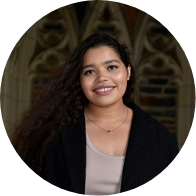
Ariel Chukwuma
View Bio +Ariel Chukwuma (she/her)
Ariel Chukwuma is a third-year undergraduate student majoring in Environmental Science and minoring in Inequality Studies. Ariel is passionate about studying environmental degradation and its socio-political impacts on minority populations. She is a Rachel Carson scholar whose research centers on environmental justice in fishing/coastal communities. As a biracial woman, Ariel is very interested in how socio-environmental issues are gendered internationally. In the future, she aspires to get a Ph.D. studying the intersection of gender, justice, and the environment. Ariel hopes this work will aid in conservation efforts that prioritize the protection of Indigenous knowledge and the health of minority populations.
LinkedIn: https://www.linkedin.com/in/ariella-chukwuma-923b22227/

Tri Truong
View Bio +Tri Truong (he/him)
Tri Truong is a senior from Ho Chi Minh City, Vietnam studying public policy, computer science, and policy journalism and media studies. He joined this project as a team member for the 2022 Story Plus research team. During his time working on the Story Plus project, he conducted and transcribed interviews with local community organizers on how to ethically conduct environmental justice research. To this end, he helped create a guideline for future researchers embarking on EJ research, learned more about what it means to include community members in social science research, and strived to ensure that no one’s voice is unheard.
Event Team (2022-2023)
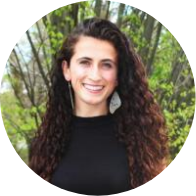
Gabriela Nagle Alverio
View Bio +Gabriela Nagle Alverio (she/her)
Gabriela is a J.D. - Ph.D. student in the University Program in Environmental Policy (UPEP) with a concentration in Political Science. Her research interests broadly include the impacts of climate change on human rights and the legal and policy solutions therein. Her dissertation research is focused on climate displacement. She holds a B.A. in International Relations, a B.A. in Feminist, Gender, and Sexuality Studies, and an M.A. in Environmental Communications from Stanford University. Prior to her time at Duke she worked as a consultant for a diversity and inclusion firm, Inclusion Design Group.
LinkedIn: https://www.linkedin.com/in/gabriela-nagle-alverio/

Anya Dias-Hawkins
View Bio +Anya Dias-Hawkins (she/her)
LinkedIn: https://www.linkedin.com/in/anya-dias-hawkins-681099206/

